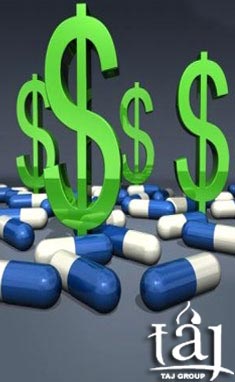|
|
HOME >>
Pharmaceuticals API List 1 >>
Enalapril Maleate
>> Consumer Information

CONSUMER INFORMATION
Enalapril maleate
CAS number CAS 76095-16-4
WARNING: This drug can cause serious (possibly fatal) harm to an unborn
baby if used during pregnancy. Therefore, it is important to prevent
pregnancy while taking this medication. Consult your doctor for more details
and to discuss the use of reliable forms of birth control while taking this
medication. If you are planning pregnancy, become pregnant, or think you may
be pregnant, contact your doctor immediately. USES: This drug belongs to a
group of medications called ACE inhibitors. It is used to treat high blood
pressure (hypertension) in adults and children. It works by relaxing blood
vessels, causing them to widen. Lowering high blood pressure helps prevent
strokes, heart attacks, and kidney problems.This medication is also used
with other drugs (e.g., "water pills"/diuretics, digoxin) to treat
congestive heart failure.
HOW TO USE: You may take this drug with or without food. Use this
medication regularly in order to get the most benefit from it. Remember to
use it at the same time(s) each day.
If you are taking this drug in the liquid suspension form, shake the bottle
well before each use. Measure the dose out carefully.
Do not take potassium supplements or salt substitutes containing potassium
without talking to your doctor or pharmacist first. This medicine can raise
your potassium levels, which rarely can cause serious side effects such as
muscle weakness or a very slow heartbeat. Tell your doctor immediately if
either of these effects occur.
The dosage is based on your medical condition and response to therapy. The
usual maximum dose for adults is 40 milligrams per day.
It is important to continue taking this medication even if you feel well.
Most people with high blood pressure do not feel sick. For the treatment of
high blood pressure, it may take several weeks before the full benefit of
this drug occurs or several weeks to months when used for congestive heart
failure.
SIDE EFFECTS: You may experience headache, dizziness,
lightheadedness, weakness, nausea, dry cough, or blurred vision as your body
adjusts to the medication. If any of these effects persist or worsen, notify
your doctor or pharmacist promptly.
Remember that your doctor has prescribed this medication because he or she
has judged that the benefit to you is greater than the risk of side effects.
Many people using this medication do not have serious side effects.
Tell your doctor immediately if any of these unlikely but serious side
effects occur: fainting, decreased sexual ability.
Tell your doctor immediately if any of these highly unlikely but very
serious side effects occur: change in the amount of urine, signs of
infection (e.g., fever, chills, persistent sore throat).
This drug may rarely cause serious (possibly fatal) liver problems. If you
notice any of the following highly unlikely but very serious side effects,
seek immediate medical attention: yellowing eyes or skin, dark urine,
stomach/abdominal pain, persistent fatigue, persistent nausea.
A serious allergic reaction to this drug is unlikely, but seek immediate
medical attention if it occurs. Symptoms of a serious allergic reaction
include: rash, itching, swelling (especially of the face, lips, tongue, or
throat), severe dizziness, trouble breathing.
PRECAUTIONS: Before taking enalapril, tell your doctor or pharmacist if
you are allergic to it; or to other ACE inhibitors (e.g., benazepril,
captopril); or if you have any other allergies (including an allergic
reaction after exposure to certain membranes used for blood filtering).
This medication should not be used if you have certain medical conditions.
Before using this medicine, consult your doctor or pharmacist if you have:
history of an allergic reaction which included swelling of the
face/lips/tongue/throat (angioedema).
Before using this medication, tell your doctor or pharmacist your medical
history, especially of: kidney disease, liver disease, high blood levels of
potassium, heart problems, severe dehydration (and loss of electrolytes such
as sodium), low blood flow to the brain (cerebrovascular insufficiency),
blood vessel disease (e.g., collagen vascular diseases such as lupus,
scleroderma).
If you have diabetes, enalapril may rarely cause low blood sugar levels
(hypoglycemia) when you first start treatment with this medication.
Carefully monitor your blood sugar level during the first month of enalapril
therapy. Treat symptoms of low blood sugar quickly and report any
hypoglycemia event to your doctor immediately.
This drug may make you dizzy; use caution engaging in activities requiring
alertness such as driving or using machinery. Limit alcoholic beverages.
To minimize dizziness and light-headedness due to lowering of your blood
pressure, get up slowly when rising from a seated or lying position. Serious
loss of body fluids can also lower your blood pressure and worsen dizziness.
Drink adequate fluids to prevent from becoming dehydrated. If you are on
restricted fluid intake, consult your doctor for further instructions. Be
careful not to become too overheated during exercise which can lead to
excessive sweating. Consult your doctor if you experience severe vomiting or
diarrhea.
MISSED DOSE: If you miss a dose, use it as soon as you remember. If
it is near the time of the next dose, skip the missed dose and resume your
usual dosing schedule. Do not double the dose to catch up.
STORAGE: Store tablets at room temperature below 86 degrees F (30
degrees C) away from light and moisture. Do not store in the bathroom.
Refrigerate the liquid suspension between 36-46 degrees F (2-8 degrees C).
Discard any unused suspension after 30 days. Keep all medicines away from
children and pets.

|









